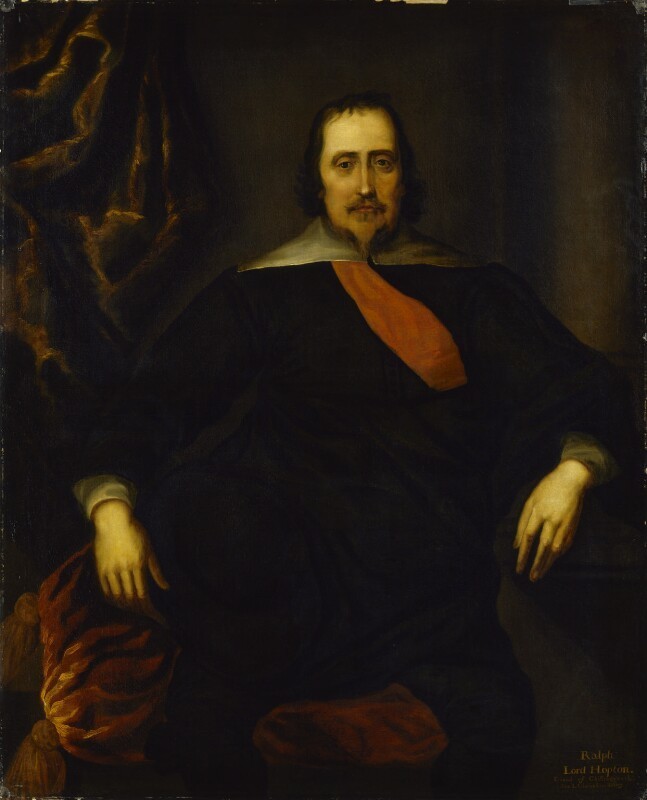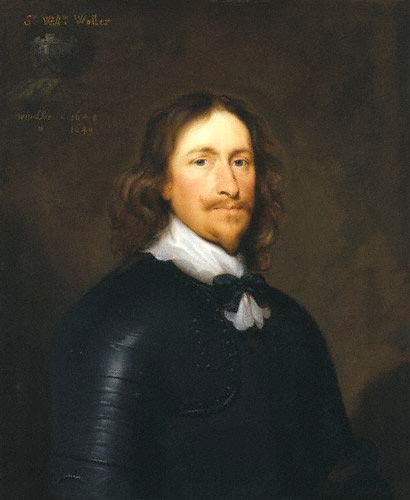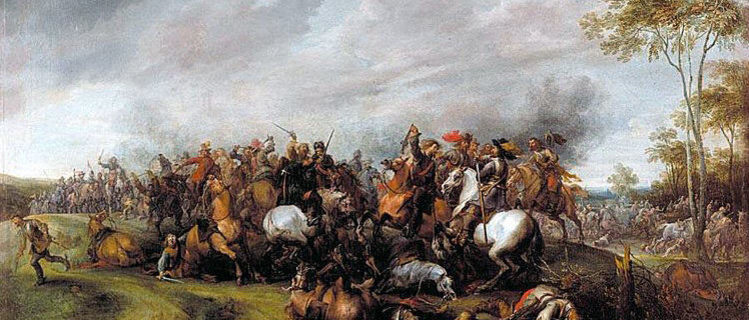Hopton and Waller: Friends Divided
Posted on 17th January 2021
Few struggles are as bitter as a civil war when all of a community’s collective anger, its rivalry and its envy come to the fore. It divides families, separates friends from one another and tears apart the social fabric that binds us. The intensity of violence expressed in civil conflict often reveals the hatred we feel for our neighbour, a hatred that can transcend any fear or loathing that we may have for a stranger or a foreign enemy. Yet for all the violence and all the cruelty inflicted it also lays bare the emotional trauma of people once so close but who now stand as mortal enemies in a life and death struggle.
So it was in the fratricidal conflict that beset the West Country during the English Civil War as men from Cornwall and Devon fought those from Somerset and Wiltshire.
The Royalist Army in the West Country was smaller than that of its enemy, but it was well-disciplined, well-organised, and well-led. Its cavalry commanded by Sir Bevil Grenville and its Cornish Infantry were some of the best and most feared in either army.
At the first major battle fought between the opposing forces at Landsdowne Hill the Royalists temporarily halted the Parliamentarian advance but at a terrible cost to itself. In a headlong charge uphill, the Royalist cavalry routed the Parliamentary infantry but 700 of the 1,000 men who made the charge were lost including Sir Bevil who would die later of his wounds.
It had at best been a pyrrhic victory and before long the superiority of the Parliamentary Army began to tell and the Royalists were forced to withdraw to the unfortified town of Devizes where they were soon enveloped and besieged.

Unknown to the Parliamentarians however Prince Maurice who had replaced Sir Bevil as Commander of the Royalist Cavalry had escaped the siege and ridden with haste to the King’s capital at Oxford to beg for reinforcements. His request was answered and on 13 July 1642, in a coordinated attack the Royalist Army broke out from Devizes at the same time as Prince Maurice with 1,500 cavalry assaulted the Parliamentary Army from the rear.
The attack came as a complete surprise and the subsequent Battle of Roundway Down soon became a rout and the Parliamentary Army which lost 600 of its 4,500 men killed and a further 1,000 captured was destroyed as an effective fighting force. In Royalist propaganda the battle soon became known as Runaway Down.
Not long after the shattering defeat at Roundway Down the vital port of Bristol also fell to the Royalists under Prince Rupert after what been a bitter and prolonged siege.
The Parliamentarians were now forced to reinforce their Western Army with troops from London who unhappy at being forced to fight so far from home were to prove both uncooperative and often reluctant to engage.
The war in the West Country was to be bitter  and hard fought one but despite repeated Parliamentarian attempts to wrest it from their control it was to remain a Royalist stronghold until the final months of the war.

With Prince Maurice assigned elsewhere the new Commander of Royalist forces in the West Country was Sir Ralph Hopton. It was Sir Ralph who had first rallied Cornwall in the King’s cause and had since advanced with his newly formed army into Devon but for all his early success he remained a troubled man for his opponent in the increasingly bloody conflict was his oldest and dearest friend, Sir William Waller.
Both men had known each other since childhood, both were local landowners, both were professional soldiers, and both were Puritans who attended the same Church. They had sat together in the House of Commons as Members of Parliament. Indeed, they were so similar in so many respects that it was difficult to tell them apart.
Throughout the turbulent years before the outbreak of war and in the many controversies that divided Parliament, they shared similar views. They had both voted in favour of the Grand Remonstrance (a list of grievances drawn up during the King’s personal rule) but they parted company when the Puritan faction within Parliament tried to pass a Militia Bill that would wrest control of the army from the King making them in effect the supreme power in the land. It was Parliaments increasing hostility towards the King and the subsequent breakdown of deference towards him that saw Sir Ralph support his attempt to arrest his leading opponents in the House of Commons.
When the King raised his Standard at Nottingham in July 1642, and war became inevitable he found that despite his strong Puritan beliefs and his objections to the King’s religious policies he could not take up arms against his Sovereign. Lifelong friends Sir Ralph Hopton and Sir William Waller were now enemies.
During the month leading up to their first major confrontation at the Battle of Landsdown Hill, Sir Ralph wrote plaintively to his oldest friend requesting a meeting.

Sir William’s response was to decline the request but in heartfelt words that remain one of the most famous examples of the agony that is a war that makes enemies of friends:
To my noble friend Sir Ralph Hopton at Wells
Sir
The experience I have of your worth and the happiness I have enjoyed in your friendship are wounding considerations when I look at this present distance between us. Certainly, my affection to you is so unchangeable that hostility itself cannot violate my friendship, but I must be true wherein the cause I serve. That great God, which is the searcher of my heart, knows with what a sad sense I go about this service, and with what a perfect hatred I detest this war without an enemy; but I look upon it as an Opus Domini and that is enough to silence all passion in me. The God of peace in his good time will send us peace. In the meantime, we are upon the stage and must act those parts that are assigned to us in this tragedy. Let us do so in a way of honour and without personal animosities.
Whatever the outcome I will never willingly relinquish the title of Your most affectionated friend.
William Waller
Following the defeat of the Royalist cause Sir Ralph Hopton fled to the Continent with the young Prince Charles. He died of fever in Bruges in 1651. Sir William Waller continued to serve as a Member of Parliament but became increasingly disillusioned with the new Commonwealth and in his later years he was to work tirelessly for the restoration of the Monarchy. He died in 1668.
The famous letter of 16 June 1643 was the last known communication between the two men whom it can be assumed never met again.
Tagged as: Tudor & Stuart, War
Share this post:





